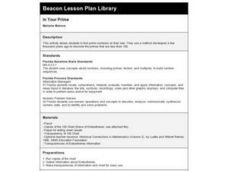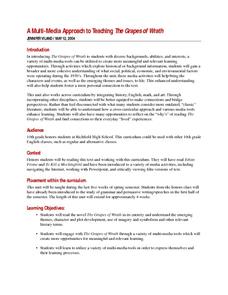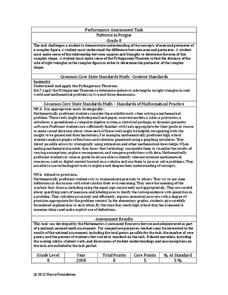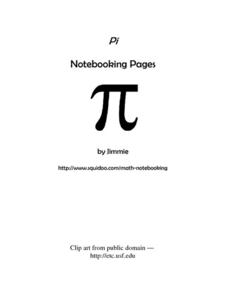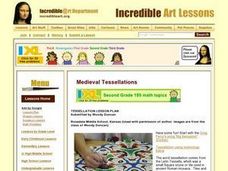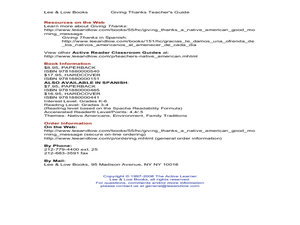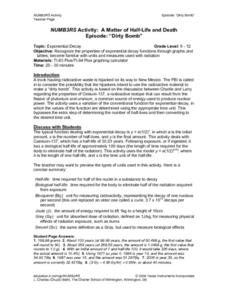K12 Reader
Eratosthenes: Geographer and Mathematician
Mathematicians can be famous, too! Introduce your class to Eratosthenes with a reading passage. After they complete the passage, learners respond to five questions, some of which require opinions and others reading comprehension skills.
Curated OER
Call to Arms: A Service Project
Sick of selling candy and washing cars? How about hosting a Digital Day or a Learning Lunch? The suggestions here make fund raising fun and rewarding. Raise money to preserve important maps and other primary source documents.
Curated OER
In Your Prime
Students study how to find prime numbers. They investigate the teachings of the mathematician Eratosthenes and apply his theory of prime numbers less than 100.
Curated OER
Prime Real Estate
Students analyze and discuss prime numbers and the Sieve of Eratosthenes, a procedure to sort out prime numbers. They identify the prime numbers from 1-100 by eliminating all the multiples of the first four prime numbers, and circle what...
Curated OER
Pythagorean Theorem
Middle schoolers investigate the concept of the Pythagorean Theorem. After conducting independent practice to find the hypotenuse of a triangle, they work with the teacher using examples in the lesson plan. The direct instruction is...
Curated OER
Unit 2: Factors
In this factors worksheet, students identify prime numbers. They use a Sieve of Eratosthenes to identify prime numbers. Students complete factor trees and explore perfect numbers. This factoring unit contains eight...
Curated OER
Pythagorean Theorem Triples
Students research the concept of the Pythagorean Theorem. In this Pythagorean Theorem lesson, students use the Internet to learn about the Pythagorean Theorem. Students construct proofs of the Pythagorean Theorem.
Curated OER
Probability and Patterns with Pascal
In this Pascal worksheet, students solve word problems dealing with probability and patterns based on Pascal's triangle theory. Students complete 10 problems total.
Curated OER
A Multi-Media Approach to Teaching The Grapes of Wrath
Integrate history, math, and art into a study of The Grapes of Wrath with a series of activities that ask learners to investigate the social, political, economic, and environmental factors at play during the 1930s. Designed to be used...
Inside Mathematics
Patterns in Prague
Designers in Prague are not diagonally challenged. The mini-assessment provides a complex pattern made from blocks. Individuals use the pattern to find the area and perimeter of the design. To find the perimeter, they use the Pythagorean...
EngageNY
The Opposite of a Number
It's opposite day! The fourth installment of a 21-part module teaches scholars about opposites of integers and of zero. Number lines and real-world situations provide an entry point to this topic.
Curated OER
Pi Notebooking Pages
What is it about pi that is so captivating? Learners can take notes about pi and other mathematical concepts on one or all five of these different pi-themed pages.
Curated OER
Decimals, Percents, and Fractions
Learners practice converting fractions, decimals, and percentages to communicate equal amounts. They fill in a table, determine the percentage of a total area that is shaded in diagrams, complete equations with decimals to the hundredths...
K12 Reader
Basic Geometry Terms
Set your pupils up to start on geometry by teaching them some introductory terminology. Pupils learn the terms by reading a short passage and looking at examples. They then respond to five questions related to the text.
Old Dominion University
Introduction to Calculus
This heady calculus text covers the subjects of differential and integral calculus with rigorous detail, culminating in a chapter of physics and engineering applications. A particular emphasis on classic proof meshes with modern graphs,...
Virginia Department of Education
Analyzing and Interpreting Statistics
Use measures of variance to compare and analyze data sets. Pupils match histograms of data sets to their respective statistical measures. They then use calculated statistics to further analyze groups of data and use the results to make...
Curated OER
Tessellation Lesson Plan
Young scholars produce original tessellations, using equilateral triangles where three unique symmetrical faces rotate, use shape, pattern/repetition, and color to create a striking composition, and create "beasties" inspired by...
Curated OER
Memories to Last: Observing Monuments
Students use scientific observation and inference to examine the Hazen Brigade Monument. In this observation lesson, students review the reasons for building monuments in society. Students then recall monuments they have seen and...
Curated OER
Utah Pioneers
Fourth graders investigate the hardships faced by the Utah pioneers. In small groups they calculate a budget using a determined amount of money, select a challenge for the group, and discuss how their group overcomes the challenges...
Curated OER
Lee & Low Books: Giving Thanks Teacher's Guide
Fourth graders participate in reading comprehension activities associated from a teacher's guide. For this reading comprehension lesson, 4th graders read Giving Thanks: A Native American Good Morning Message by Chief Jake Swamp and...
Curated OER
The Odds of Dying During a Plague
Sixth graders explore plagues in the middle ages. For this social studies lesson, 6th graders examine the impact of deadly plagues on past societies and how the governments were forced to make drastic changes in response to the plagues
Curated OER
Food Pyramid Abacus
Students investigate the Food Pyramid by constructing a creative project known as a Food Pyramid Abacus. They correlate the color beads withe each food group and the number of recommended servings from each. The abacus is a learning tool...
Curated OER
NUMB3RS Activity: A Matter of Half-Life and Death
Students investigate exponential decay. Students explore the biological half-life of Cesium-137. Students investigate the Goiania Accident of 1987 which is considered one of the worst incidents in the history of the Atomic...
Yale University
Airplane Mathematics
The history of aerodynamics is rich with experimentation and international collaboration. Author Joyce Bryant relays this dynamic past and provides math word problems using the formula of lift, the force that makes airplanes fly. She...
Other popular searches
- History of Mathematics
- Math History
- Black History Month Math
- History of Mathematics India
- The History of Mathematics
- Basic Facts Math History
- Math History Biography
- Women History and Math
- Math History & China
- Roman Numerals Math History
- History Discrete Mathematics
- Math History Root Words




